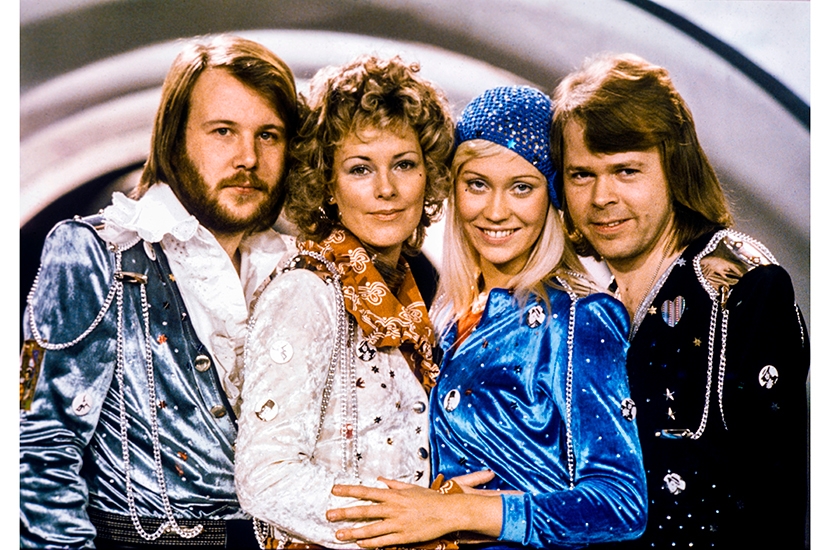In Competition No. 3205, you were invited to supply a rigorous literary-critical analysis of a well-known pop song.
Thanks to Oliver Hawkins, who drew to my attention J. Temperance’s real-life analysis of Boney M’s ‘Daddy Cool’ (The New Inquiry, 2015): ‘We may paraphrase Deleuze and Guattari and state that “it is within capitalist society that the critique of ‘Daddy Cool’ must always resume its point of departure and find again its point of arrival.”’ Which gives a sense of what you were aiming for. Fiona Clark’s dissection of ‘Bohemian Rhapsody’ hit the spot: ‘Arguably, the “poor boy” or “Little silhouetto” embodies the quintessentially paradigmatic figure of the Pharmakos or scapegoat, whilst merging with the composite anti-hero, Scaramouche-Figaro-Beelzebub…’ As did David Shields, David Silverman and Bill Greenwell, who were unlucky losers.
The winners below pocket £30 each.
Lost ‘on a dark desert highway’, Dante enters a labyrinth of corridor and courtyard that ‘could be heaven’ or ‘could be hell’. Not only is God dead, his spirit unavailable ‘since 1969’ and his forsaken Purgatorio supervised by a banal regency of ‘Captain’ and ‘Nightman’, but Nietzsche himself is stabbed with ‘steely knives’ when the hedonists ‘gather for their feast’, but with thematic futility ‘they just can’t kill the beast’. The vision is Spenglerian — Der Untergang des Abendlandes: no locus more decadent than a hotel; no land more sunset-stricken than California. Finding himself among ‘pretty boys’, Dante flees an avaricious Beatrice, ‘Tiffany-twisted’ with ‘Mercedes bends’, in the hope of finding ‘the passage back to the place I was before’; a desert Inferno is preferable to this ceiling-mirrored Möbius strip of deadly sins, where ‘you can check out any time you like, but you can never leave’. Nick MacKinnon
In ‘California Girls’, the Beach Boys’ foregrounding of das Ewig-Weibliche (femininity reduced, in Beauvoir’s words, to a ‘vague and basic essence’), co-opts intersectionality via simultaneous objectification of women and display of anxious male vulnerability. The lyrics sum up East Coast girls as ‘hip’ style icons wearing clothes ‘I really dig’, Northern girls as hetero-normative courtesans whose kisses ‘keep their boyfriends [never girlfriends?] warm’, West Coast girls as suntanned, bikini-clad titillation for the male gaze, and Midwest girls as ‘farmer’s daughters’, their identity defined by the patriarchy, who exercise some unspecified ability to ‘make you feel alright’. However, Southern girls are formidable sirens whose voices overpower a man like aural moonshine — ‘They knock me out when I’m down there’ — while the song’s signature wish that all women ‘could be California girls’ expresses a fantasy so epically unrealistic that it serves to interrogate the very concept of gendered categorisation and possession. Chris O’Carroll
Duetting on the Bee Gees’ ‘Islands In The Stream’, Dolly Parton and Kenny Rogers must have relished its dialogic opposition of sly banality and defiant high-cultural allusion. ‘Ambiguity’ is the neo-Empsonian keynote, its audacious scope of reference supporting Derrida’s edict that ‘il n’y a pas de hors-texte’. Is the teasing line ‘you do something to me’ homage to Cole Porter or Paul Weller? Does ‘I set out to get you/ With a fine tooth comb’ function metonymically for chasing German submarines in the Caribbean in Hemingway’s posthumously published novel? Can the line ‘Slowly losing sight of the real thing’ be itself a reflexive comment on language’s inadequacy to ‘capture’ the real? So far so good for the text’s postmodern, problematic status. However, as Pierre Macherey has shown, readings dependent on what appears in the text ipso facto evade its exclusions, namely the key structuring absences. Basil Ransome-Davies
Yummy Yummy Yummy. The title of this Ohio Express hit, doubling self-referentially as its opening phrase, is an onomatopoeic pleasure significantly necessitating mouth movements customarily deployed during mastication and calculated, in a nod to the Proustian madeleine, to regress listeners into receptive infancy. When its faux-naif protagonist asserts that love — here a conceptually plasticised term, as much epicurean as sexual — resides in his tummy, we observe how appetites conflate. That tummy — its repeated mention a subconscious, Freudian allusion to the gravid, prenatal Paradise from which we are all exiled but in which all requirements for nutrition and affection were gratified simultaneously — disturbs. From Titus Andronicus to the canon of films mythologising Jeffrey Dahmer, scholars will find ample precedent for the guiltless consumption of the love object in western popular culture. Sheathing a synthesis of lust and gluttony in a bubblegum pop wrapper satirically subverts sugar-and-sex-fixated late capitalism. Adrian Fry
On 15 July 1815 Napoleon Bonaparte surrendered on HMS Bellerophon, the Battle of Waterloo already a month past. Thus, this narrative begins with deliberate inaccuracy, playfully nails itself to the history book’s verisimilitude with a consonant true rhyme — ‘shelf’ and ‘itself’ — a rare incarnation in an Abba lyric, and then plunges into irony. The narrator, we soon perceive, is toying with her interlocutor: the verb forms, imperfect then preterite, suggest that some romantic Rubicon has been crossed: ‘…was defeated… you won…’ And yet the battle is not yet fought: the protagonist is facing her Waterloo unsubdued and in a defiant present tense. As the quality of the rhymes softens a truer narrative emerges — her fate will be neither Napoleon’s nor the field of battle. Rather, it is that universal exemplar of mobility — Waterloo railway station. She ‘couldn’t escape if she wanted to.’ And yet escape she surely will. Nick Syrett
No. 3208: marriage guidance
Bernard Cornwell recently referred in this magazine to Coleridge’s dictum that the best marriages are between a deaf man and a blind woman. You are invited to submit a recipe for marital bliss on behalf of an author of your choice (please specify). Please email entries of up to 150 words/16 lines to lucy@spectator.co.uk by midday on 14 July.






Comments